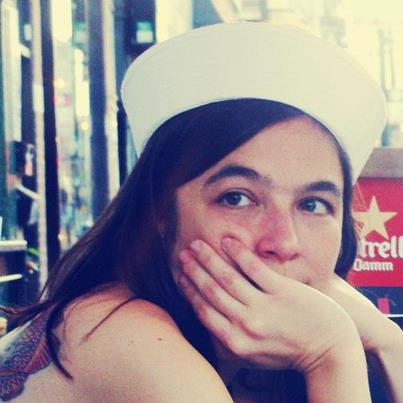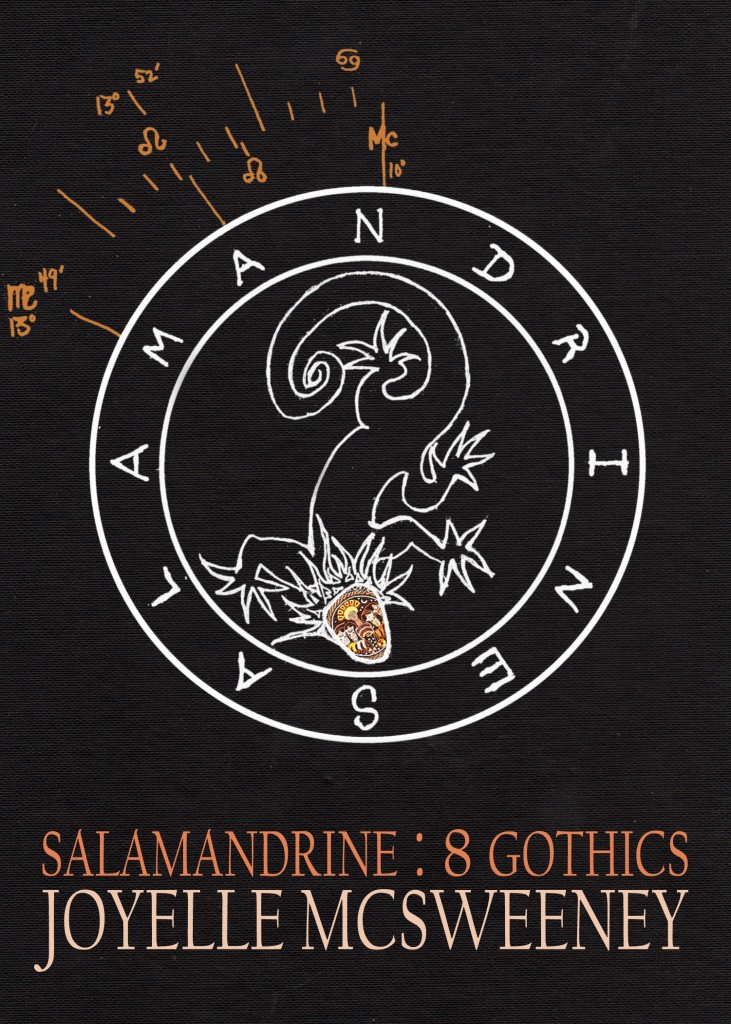 Thanks to Jeff Jackson, who writes
Thanks to Jeff Jackson, who writes
It makes sense that Joyelle McSweeney works in so many different modes–poetry, novels, short stories, theater, criticism–because her work is constantly crossing borders, upsetting categories, and insisting on its own singularity. Her most recent book, Salamandrine: 8 Gothics, is a collection of playfully pitch-black tales that center around crumbling worlds and mothers and daughters.
These stories refuse to stand still. It’s not unusual when “Mothers Over Lambs” breaks into incantatory poetic refrains that could belong to gnostic scripture. “No birth without death / No lamb without mother / No word without fire / No fire without knife / No blood without lamb / No lamb without mother.”
It actually took one of the so-called milestones of “maturity” for me come into my Gothness—and that was becoming a mother. Almost the instant I gave birth, I suddenly realized how fixed the game is. I realized that corporations were selling me products to supposedly protect my baby girl, and then recalling them (to no fanfare) just a few months later, admitting them to be carcinogens, flame-bearers, or choking hazards. I realized that the walls and the floors, the soil and the air were toxic, everything that could be seen or touched was poison, everything mankind did made the world worse, just moving around and breathing. It seemed to me that I had been walking in fire. Why had I not known it? Nutriment and poison, protection and hazard, comfort and harm were not binaries but indivisible, each one turning over to reveal its attractively hairy reverse or iridisceing, spiny obverse. All binaries collapsed for me. An agony of trance. Yet I suddenly understood what I had been training for in my earlier years as a baby decadent. I suddenly understood that Art as the one material on earth that is bio-identical to Death. I call it death-in-life or life-in-death. Or as Poe wrote: Lygeia! And I must say it’s been a great relief to put aside those American/humanist myths of health, wealth, futurity, stability, success, progress, and perfection in favor of these absolute values of Crime, Death, and Art.
And:
I write prose the same way I write poetry or anything—I feel pulled into a zone of not knowing, and I try to sing back to that invitation or pull. Maybe my singing is out of phase with the initial invitation, and so they create dissonances, amplifications and weird accidental harmonies. My writing is very sonically driven, it happens not entirely inside rationality, and I try to keep building towards that peak/declivity where the irrational splits apart from the rational and moves the writing outside of the paraphrasable or knowable. I don’t think writing should build any kind of boundary wall, I don’t think writing should wall out the terrible urges and urgencies that have the world skidding on its anthropogenic decline. I believe in a bloody grin and a look of dismay. I believe in influence, especially bad influences. I’m defenseless. I’m against humanism and its graveyard-whistling, though I like both graveyards and whistling. Meet me at the cemetery gates. You know how to whistle, don’t you?
Read the full interview with Joyelle McSweeney.
